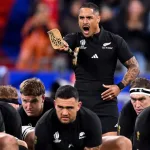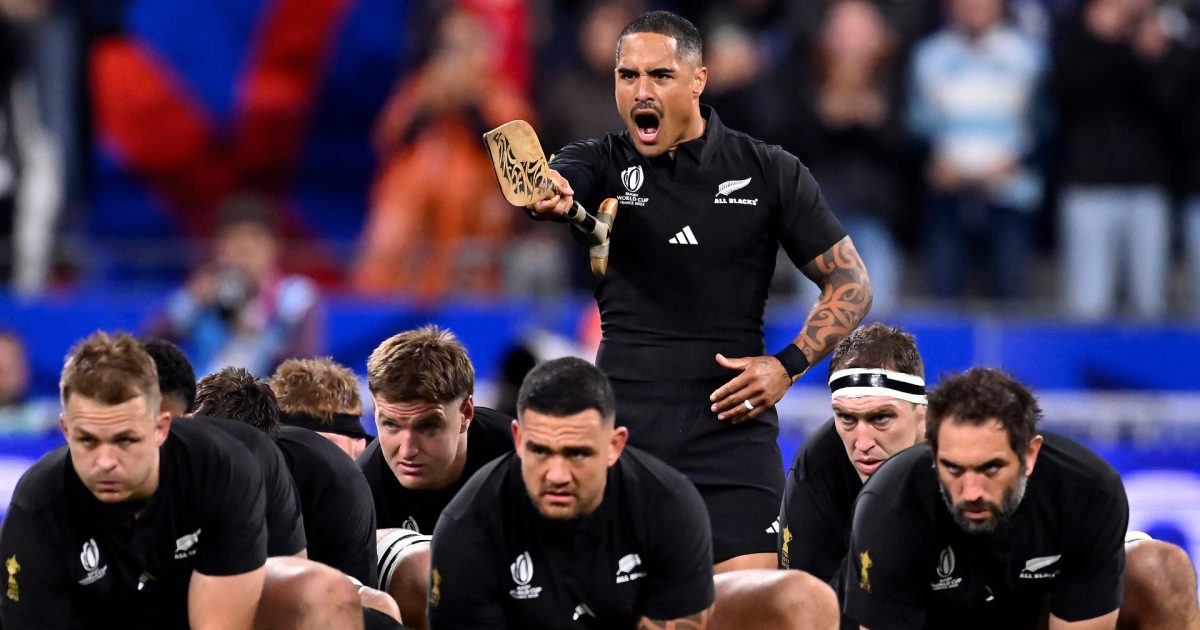Rugby in New Zealand is overflowing with Talent but it has nowhere to Go

With the proliferation of the Warriors in recent years, rugby league and the NRL’s talent raid on rugby union schools have received a great deal of media attention. The truth is that New Zealand rugby has an abundance of playing skill and a scarcity of funding, despite tales of NRL club scouts attending U15 national rugby competitions in large numbers as part of their recruiting drive. It will benefit both codes if any of those players sign development deals and pursue careers in rugby league.
Take into consideration that not a single dollar has been contributed by the union to the professional athlete development of Roosters standout Joseph Manu, who is now on a longer-term road to play for the All Blacks and is presently playing rugby in Japan.
Like Sonny Bill Williams, who went to France for his first assignment, rugby in New Zealand may eventually reap benefits from Manu’s move. While Manu was playing rugby league, one of the few slots in a union academy was awarded to another gifted player.
Williams was just one of several young Kiwis who left their home country to play league football in Australia. He proved to be an exceptional All Black, a disruptive player who contributed to the winning of two Rugby World Cups. One of the major plays in the 2015 final was his offload to Ma’a Nonu.
It’s sometimes overlooked that only specific players—athletes with the ability to play centre, wing, or second row—will meet the requirements of NRL teams. It’s safe to say that none of the tight five guys will be taken seriously. It is uncommon for halfbacks and first fives to move into a dummy half or league standoff.
They are searching for fast-moving, explosive players, of which schoolboy rugby in New Zealand is incredibly overabundant. However, determining who will be NRL-capable at that age is completely random. The same holds true for professional rugby union’s projection of early skill. For Rugby News The Daily Rugby
Professional rugby teams in New Zealand are all too familiar with the enormous danger involved. They won’t sign 14-year-olds since they’ve saw it happen countless times. Many of the handful that do have a chance in the road still don’t work out for various reasons.

In the rare event that they do pursue a unique talent, like they did with Etene Nanai-Seturo, it was after he was older and had the opportunity to renounce his Warriors contract in order to pursue union. If you’re a prospect hoping to make it into the league, keep in mind that union offers superior top-tier quality between the ages of 18 and 20 on both sides of the border.
Because of the expense, the NRL discontinued its national U20 competition many years ago. At that age, the local feeder club’s park football team is home to top rugby league players.
With the promise of being selected for the New Zealand U20s, union talent in New Zealand will compete in the Super Rugby U20 competition each year. A brand-new international age-grade tournament that serves as a prelude to the World Rugby U20 Championship is the recently established Rugby Championship U20.
Would you wish to play in Campbelltown or Cape Town, to use an ancient proverb? The U20 players of this year will have the latter and benefit from a life-changing event. If you are a top talent, the prospects for U20 players in union much exceed those in league, even though the NRL receives more television money. Because of this, elite union players will typically continue down union routes.
In the province unions of New Zealand, academies are specifically targeted. The annual intake is limited to a maximum of eight players. There is a tonne of untapped ability that is left behind. And for that reason, there’s too much quality out there for NRL teams to pass on.
New Zealand Rugby has an excess of Talent
To illustrate the sheer amount of untapped potential in New Zealand, let’s look at the narrative of All Black wing Mark Tele’a. His ascent to the top is an incredible tale of tenacity and determination—a player who went from being unnoticeable to among the greatest in the world. No age-grade national teams selected Tele’a.
Remember that Tele’a didn’t even participate in Super Rugby during the 2019 Rugby World Cup. With four NPC seasons under his belt with North Harbour, he had plenty of opportunity to attract the attention of Super clubs.
That’s generally the end of the road for a 23-year-old winger with a limited amount of playing time left in him. That year, he tried out for the Hurricanes but wasn’t needed by them.
After being given an opportunity with the Blues in 2020, Tele’a broke through with the All Blacks in just two years and was among the top players in the Rugby World Cup in 2023. He must have had a strange experience playing his double against France on opening night.
Defenders are just unable to overcome him. In Super Rugby, he routinely leads the rankings, and that carries over to the international competition. At age 27, which has historically been the All Black winger’s expiration date, he had his breakthrough season for the All Blacks in 2023. Tele’a was getting called up at a time when most people were only given a pat on the shoulder.
New Zealand Rugby League and the NRL’s talent raid on Rugby Union
In the end, Tele’a would have received lavish treatment at Massey High School and the NRL if someone had predicted his arrival. Because of this, NRL teams are free to pursue any child they like; they will likely miss more children than they hit, and some of the children who leave will probably return.
Former New Zealand schoolboys union players Ngani Laumape and Roger Tuivasa-Sheck eventually gave up rugby league to pursue a career in schoolboy union.
Given that provincial rugby is almost completely irrelevant, New Zealand rugby has legitimate concerns about the commercial status of the sport and its governance structure. Unquestionably, it has become an unmanageable financial burden, and public interest in the competition is at an all-time low.
More players in New Zealand would be eligible for development-level funding if the professional game there took a different course from its present one. That’s just not the situation right now, but it might not be a terrible thing for union and the young possibilities if the NRL picks up the pieces and invests in a few more players.
Perhaps there would be greater worries if NRL clubs were permitted to recruit more than half of the New Zealand schoolboys union team annually for the following five years.
Last season, they signed two starters, Tevita Naufahu, a winger at Redcliffe, and second five-eighth Caelys-Paul Putoko, who is now at the Gold Coast Titans. The abundance of talent in New Zealand is the problem, not the pipeline. The problem, which has received a lot of attention, stems from a flawed business strategy that isn’t growing the pie to accommodate everyone. Read more about Rugby in New Zealand is overflowing with Talent
source https://thedailyrugby.com/rugby-in-new-zealand-is-overflowing-with-talent/
Comments
Post a Comment